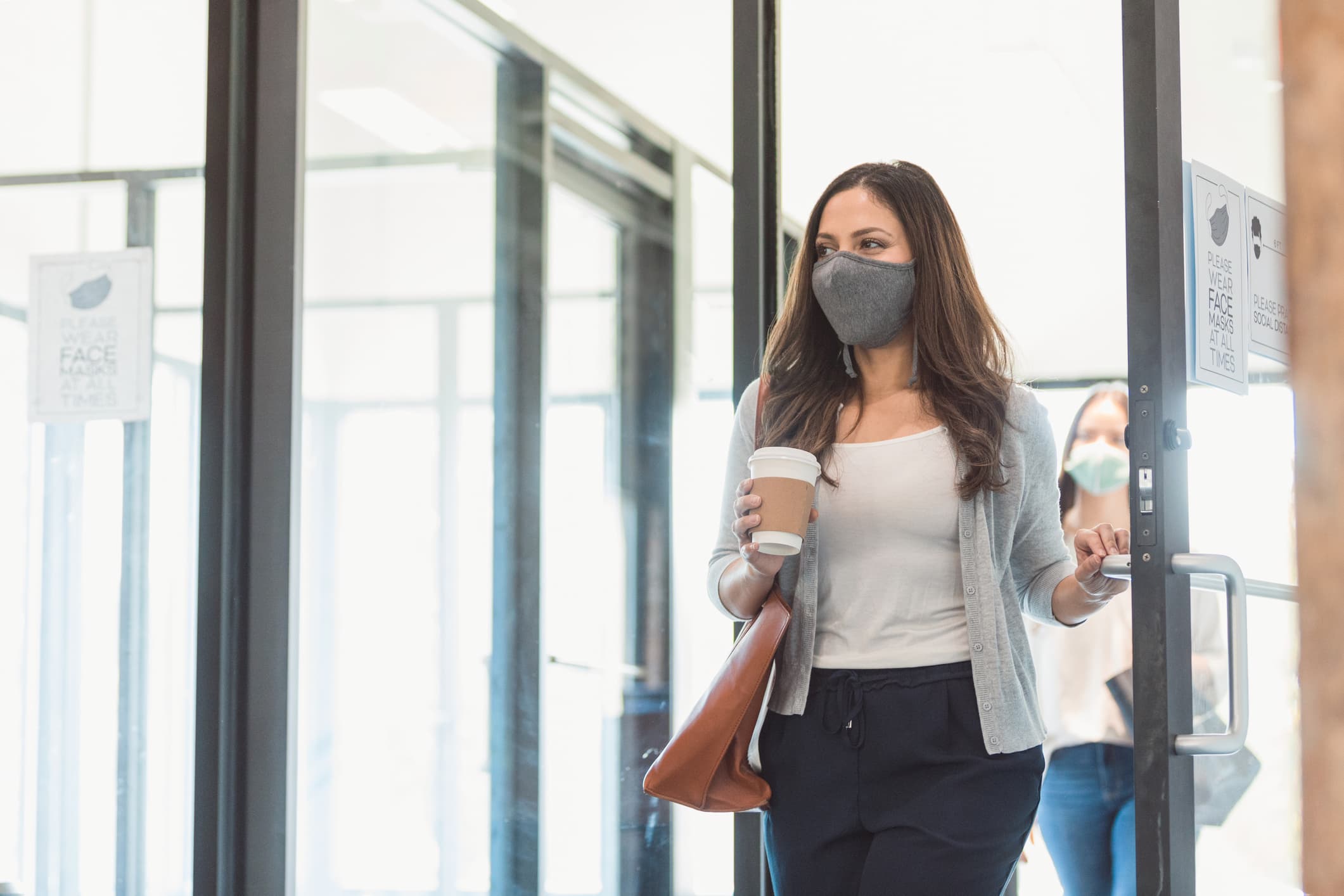
A large portion of the American workforce seemed set to return to the office in January.
Then, omicron arrived.
The new Covid variant, which is now in at least 19 states as of Wednesday, has already caused multiple companies to delay their office reopenings. Detroit-based Ford Motor announced Monday that it won’t reopen offices until March, due to omicron and an increase of Covid cases in Michigan. Last week, Google pushed its Jan. 10 return date further into 2022, without pinpointing a new date.
The moves could be completely warranted, or an overreaction — depending on questions about omicron that scientists are currently working to answer. Those include exactly how transmissible omicron is, whether it causes severe disease and illness and how well the country’s approved Covid vaccines protect against it.
“Whether or not you do go back to the office in January, versus a later date, is really going to be a function of the time that it takes science to answer those questions,” Keri Althoff, an epidemiologist at the Johns Hopkins Bloomberg School of Public Health, tells CNBC Make It.
Hopeful information is trickling in already. Here’s what you need to know:
Right now, you’ll need stringent safety measures to return to the office
Preliminary research suggests omicron could cause milder Covid infections than previous variants, White House chief medical advisor Dr. Anthony Fauci told CNN on Sunday. It’s an encouraging finding, he said, though not enough evidence to determine the strain’s risk of severe illness or death.
But Dr. Wafaa El-Sadr, a professor of epidemiology and medicine at the Columbia University Mailman School of Public Health, says businesses can return to in-office work right now — as long as workers abide by stringent safety rules.
“We have really reassuring evidence that the workplace can be quite safe, so long as you actually do follow the basic protection measures that that we have in place,” El-Sadr says. Many essential workers have been going to work in-person since long before Covid vaccines were widely available, she adds.
The problem: Many workers or employers may be unwilling to follow those rules. For starters, they include everyone in your office getting vaccinated and, if eligible, boosted against Covid. Roughly 72% of U.S. adults are fully vaccinated, but only 26% are currently boosted, according to the Centers for Disease Control and Prevention.
Some companies have issued vaccine mandates in recent months, and New York City mayor Bill de Blasio announced a citywide mandate for private employers on Monday. The Biden administration’s nationwide mandate is on pause after a federal appeals court issued a stay last month, but other cities could soon follow New York City’s example.
El-Sadr says in-office workers should also wear surgical masks indoors, to prevent breakthrough infections or potential transmission. That could be additionally important if omicron proves more transmissible than other variants.
“Masking is really for added protection, particularly in the context where you’re sitting elbow-to-elbow with a lot of other people in an indoor space,” El-Sadr says.
This guidance could change rapidly, so stay flexible
Most people probably don’t want to wear masks for at least eight hours per day, five days per week. That makes it hard to return to the office, at least until researchers know more about omicron.
It might be “impossible for employers to set a new return date with any type of confidence,” Bradford S. Bell, a Cornell professor in strategic human resources, told CNBC Make It last week.
Instead, Althoff recommends, stay agile and prepare yourself to change course if new information arises. Situations can change quickly in a pandemic, and omicron’s rapid emergence is proof.
For example: On Wednesday, Pfizer and BioNTech published early data indicating that their Covid booster shot protects against omicron significantly better than their original two-dose vaccine regimen. If that data holds true, boosters could quickly become mandatory for some companies’ return-to-office plans.
“This pandemic has taught us is that flexibility is definitely needed,” Althoff says.
In the meantime, if your workplace is dead-set on returning to the office right away, El-Sadr advises that you and your colleagues mask up. Consider the annoyance of wearing a mask in the office every day “a small sacrifice” toward ending the pandemic, she says.
Sign up now: Get smarter about your money and career with our weekly newsletter
Don’t miss:
With omicron out there, here’s how to decide if you should attend that holiday party




